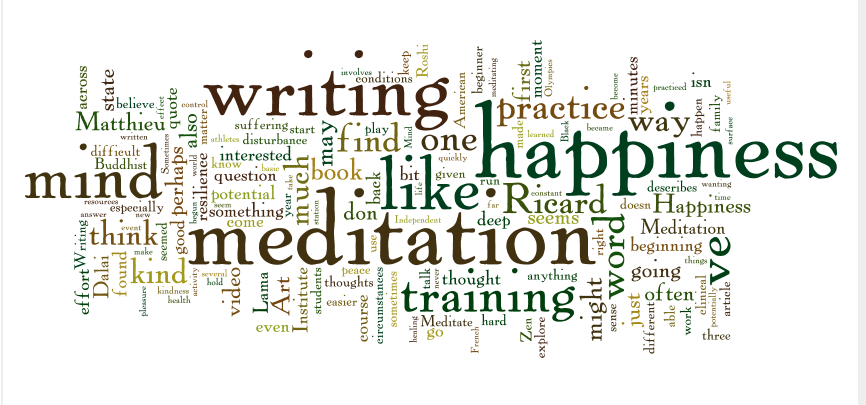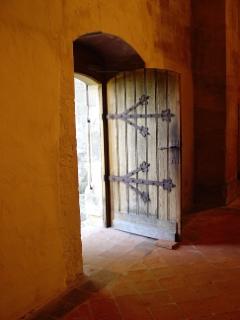Writing and Meditation Prompt: On “In Silence” by Thomas Merton
Be still. Listen to the stones of the wall. Be silent, they try to speak your name. Listen to the living walls. Who are you? Who are you? Whose silence are you? from “In Silence” by Thomas Merton One way of thinking about meditation, it occurs to me, is to think of it as listening to thoughts in the silence—either one’s own thoughts or the thoughts of someone else, or some combination of the two. And one way of thinking about writing and meditation would be to combine this kind of thinking in the silence with writing about it afterwards. The meditation and the writing complementing each other. This is something I’ve been trying out lately, and playing with, in my quest to explore and practice meditation. I seem to have settled on three steps. These steps could be thought of as meditation for those (like me) who find meditation a challenge. Or these could be thought of as writing and meditation for the beginner. Relaxing and settling in The meditation itself Writing about it The steps, of course, could be adapted as needed. Here are the three steps as they might apply to meditating and writing on this excerpt from Thomas Merton’s poem. The process as outlined here would take about twenty minutes. Probably best if one can find twenty minutes of quiet, uninterrupted time to try this out, but this too could be adapted. First, settle in and begin to relax. Take 5 minutes or so. If you’re already a meditator, you can sit in the posture you use for meditation. (If you’re already a meditator, you probably don’t need these instructions!) Or you can sit in a chair. Whether sitting on the floor or a chair, best if possible if your spine can be straight—and then your muscles relaxed or beginning to relax. I’m including here brief instructions for relaxing and settling in, instructions I’ve adapted from instructions I learned when I was doing imagery training (a kind of hypnosis training), fairly basic instructions that I often used with patients when I had my mind-body medicine practice. Sometimes, when working alone, it can be helpful to record a script like this and listen to it while you relax, but you can also simply read it and go back and forth between reading it and settling in. Begin with a cleansing breath—a deep inhalation, a pause—and then a long breath out. Do this twice. And then begin, very gradually, to bring your attention to your body. Beginning with your feet. The soles of your feet. Your toes. Noticing that, and then, if you like, inviting your feet to relax. And noticing what that feels like . . . Now your calves. Noticing what you feel there. Your thighs. Your hips. Inviting the muscles to relax. All the time noticing, paying attention. As you do so, you might begin to feel a flow of relaxation moving from your feet up into your legs, your hips, your belly, your chest. If you do, just notice it. Notice what happens as you bring your attention gradually up the body, imagining the relaxation flowing into your neck and shoulders, and down into your arms, and past your elbows. Then down into your hands—the tips of...
read more





